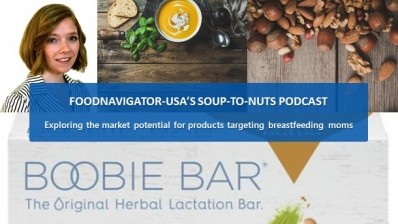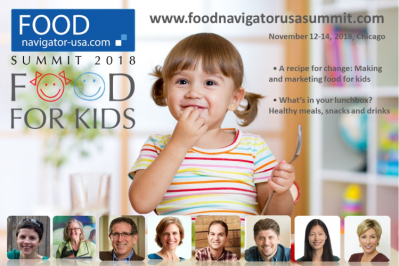Parents’ confidence in children’s nutrition drops as they age, revealing opportunity, IFIC study shows

By surveying more than 1,000 parents of children under 2 years of age, IFIC found 43% of respondents said feeding their children a nutritious diet is their top priority – second only to having a strong bond with their children, which was cited by 46% of parents as their top priority.
Within this group, parents of children 3 to 5 months old are more likely to focus on eating nutritional food, as are parents who do not work outside the home, according to the survey. In addition, it found parents who receive advice on what to feed their children from a pediatrician tend to focus on developing and sticking to a routine more than other parents.
As a result of this focus, most parents are confident that they are feeding their child an age-appropriate, nutritious diet, but this confidence wains slightly as children age. Parents whose child is under 12 months old were more likely to report that they are very confident in their ability to provide a healthy diet than those who have children aged 12 to 24 months.
Parents worry about feeding transitions
This decline in confidence as children age could be attributed in part to concerns that parents said they have around feeding milestones and transitions, such as introducing baby foods, solid foods and cow’s milk, according to the survey.
“Overall, there is a gap between when some parents yet to hit specific milestones expect to introduce a specific food and when parents actually report the transition happen. A sizeable share of parents expect to introduce foods later than it actually happens,” according to the survey. This could catch some caregivers under-prepared for the change when it happens.
For example, 20% of parents said they expected to introduce baby foods at 12 months, but in reality only about 10% of parents waited this long, with about two-thirds making the change at about six months. Likewise, parents most often start their children on solid foods at six to 12 months, but most expected to do so closer to the one-year mark.
The gap between expectation and reality is seen across food and beverage categories, and yet most parents feel comfortable with the amount and source of information they have around feeding. However, IFIC found, about one in five parents of babies would like a guide on age appropriate food, which might help manage their expectations and is an area where manufacturers could help fill the void.
Parents’ views on what is healthy
Given parents’ focus on providing their children with a nutritional diet it shouldn’t be a surprise that 62% prioritize nutritional value as very important – significantly more than price at 27%, convenience at 24% and brand familiarity at 23%
But what parents consider healthy or nutritious may surprise some industry players. According to IFIC, feeding children an appropriate amount of vegetables was a top goal of 51% of parents, while 41% listed protein, 34% said fruit, 14% said dairy and 11% said grains.
Fruit may have fallen so far down the list because of its high sugar content, which 43% of parents said was a specific concern, according to the study. The amount of sugar in yogurt also was a concern for 57% of respondents – which may explain why it fell behind pureed green beans and milk as the first and second ‘healthiest’ food.
Despite the sugar, parents said the top advantages of feeding their child yogurt was the amount of calcium and vitamin D it contains, that their children enjoy it and that it promotes a healthy immune system. Other reasons that parents pick dairy as a healthy option is it is high in fat and protein according to the report.
As for what parents try to avoid because they view it as unhealthy: high fat, calories and sodium, according to the report.
While parents know what they want out of food and beverages for their children, many worry that they cannot afford the time or money it takes to provide higher quality products, according to the IFIC study.
It found more than 20% worried about having enough time to make healthy food for their children and about 20% feared not being able to afford healthy food for their child. In both cases this fear doubled for parents of children six months or younger and as the children aged this fear ebbed.
These findings can help manufacturers fine tune their on-pack messaging, including providing additional information about different feeding milestones and what parents should expect. They also can help brands as develop new formulas to help feed children a diverse and nutrition meal.

















